Creating Diverse, Equitable and Inclusive Content in Health in Medical Education
Bias, shame, stereotype and stigma are pervasive in healthcare, with detrimental effects on the learning environment, student and faculty retention, and the health of our patients and communities. How can educators learn to create diverse, equitable, inclusive content? In this webinar, Dr. Caruso Brown will provide a concrete framework for educators, exploring examples of how to effectively address racism and other forms of bias and structural oppression in medical science education.
Strategies to Recognize and Address Implicit or Explicit Bias in Small Group Teaching
Health science education is undergoing a revolution towards utilizing small group teaching settings to provide students with opportunities to apply basic science principles to clinical cases. These sessions may include traditional problem-based learning, clinical skills groups, case-based applications and other approaches. Inherent in these approaches is the important educational value of individual socialization. In an inclusive learning setting, diversity among students and faculty working together in close proximity heightens and enriches the learning experience. However, the existence of implicit and even explicit bias can sabotage the learning environment by disenfranchising individuals. As medical learners and educators, we have the shared goal of fostering an inclusive learning environment. To that end, this webinar will highlight real-world examples of bias and micro-aggressions that could occur in the small group setting. These examples will not only be demonstrated and discussed, but subsequently followed by constructive strategies faculty and students can use to address bias in the learning environment. Using role play and interactive discussions, this webinar will help equip faculty and students with the tools needed to foster a welcoming, healthy, and productive learning environment.
Achieving Equity in Assessment for Clinical Learners
In this session, the presenters will review evidence on bias and inequity present in assessment with a focus on clinical learners and the effects of inequitable assessment practices on grades and awards. They will discuss the components of an equitable assessment system and share strategies to minimize bias and promote equity.
Pathways & Pipelines: Approaches to Increasing Diversity in the Health Professions
This session aims to describe the current state of diversity in physician assistant, physician and the biomedical PhD workforce; compare programs and initiatives to increase diversity; and identify future opportunities to advance diversity in the health sciences.
Surviving Club Quarantine: Establishing Mentorship and Maintaining Wellness in a Diverse Student Population
In this webinar, speakers will discuss why graduate health professions programs should address wellness, especially as it aligns with the current focus on diversity and inclusion initiatives. They will provide information on how their individual campuses address student wellness and provide practical examples on how webinar participants can implement ways to engage with students during limited face-to-face interactions.
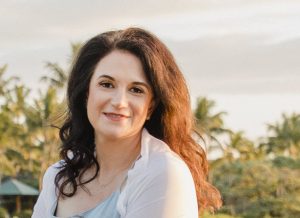 Dr. Amy Caruso Brown is an Associate Professor of Bioethics and Humanities and of Pediatrics at SUNY Upstate Medical University, where she directs bioethics and health systems science education for medical students and leads the Upstate Bias Checklist Project. Her other research interests include the role of social justice in professional identity formation in medicine and the impact of social media on trust and the family-provider relationship. Dr. Caruso Brown is a graduate of the University of Virginia (BA, 2002), the University of Oxford (MSc in Medical Anthropology, 2008), Emory University (MD, 2008), and the University of Colorado (MS, 2014). She completed graduate medical training in general pediatrics and pediatric hematology/oncology at the Children’s Hospital of Philadelphia (2008-2009) and the Children’s Hospital Colorado (2009-2014). She is currently board-certified in general pediatrics, pediatric hematology/oncology and healthcare ethics consultation.
Dr. Amy Caruso Brown is an Associate Professor of Bioethics and Humanities and of Pediatrics at SUNY Upstate Medical University, where she directs bioethics and health systems science education for medical students and leads the Upstate Bias Checklist Project. Her other research interests include the role of social justice in professional identity formation in medicine and the impact of social media on trust and the family-provider relationship. Dr. Caruso Brown is a graduate of the University of Virginia (BA, 2002), the University of Oxford (MSc in Medical Anthropology, 2008), Emory University (MD, 2008), and the University of Colorado (MS, 2014). She completed graduate medical training in general pediatrics and pediatric hematology/oncology at the Children’s Hospital of Philadelphia (2008-2009) and the Children’s Hospital Colorado (2009-2014). She is currently board-certified in general pediatrics, pediatric hematology/oncology and healthcare ethics consultation.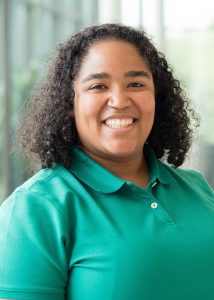 Charlotte Baker, DrPH, MPH, CPH is faculty in the Virginia Tech Data and Decisions Destination Area; the PI of the analytic epidemiology I-SPY DATA Lab at the Virginia-Maryland College of Veterinary Medicine; a member of the Faculty of Health Sciences; and faculty in the Virginia-Tech Carilion School of Medicine. Her research lab prioritizes bridging the methodological and data gaps in sports injury research by using advanced statistical analysis and large data sets, especially to address disparities in sport and recreation caused by social and structural determinants of health. A former Epidemic Intelligence Service Officer at the Centers for Disease Control and Prevention, she has more than 15 years of experience in the evaluation and assessment of both original and secondary data to address public health problems; community-based experience that directly addresses a variety of health problems within minority and underserved populations; and directing and managing data analysis with and for collaborators. She collaborates with the Virginia-Tech Carilion School of Medicine to design and implement interprofessional health equity and health disparity educational activities.
Charlotte Baker, DrPH, MPH, CPH is faculty in the Virginia Tech Data and Decisions Destination Area; the PI of the analytic epidemiology I-SPY DATA Lab at the Virginia-Maryland College of Veterinary Medicine; a member of the Faculty of Health Sciences; and faculty in the Virginia-Tech Carilion School of Medicine. Her research lab prioritizes bridging the methodological and data gaps in sports injury research by using advanced statistical analysis and large data sets, especially to address disparities in sport and recreation caused by social and structural determinants of health. A former Epidemic Intelligence Service Officer at the Centers for Disease Control and Prevention, she has more than 15 years of experience in the evaluation and assessment of both original and secondary data to address public health problems; community-based experience that directly addresses a variety of health problems within minority and underserved populations; and directing and managing data analysis with and for collaborators. She collaborates with the Virginia-Tech Carilion School of Medicine to design and implement interprofessional health equity and health disparity educational activities.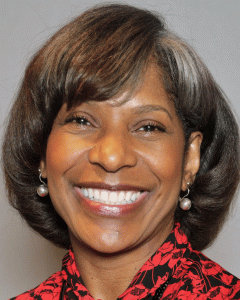
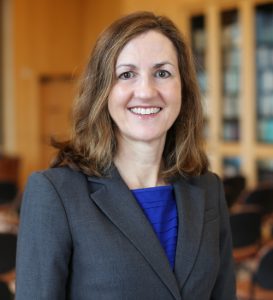 Karen Hauer is Associate Dean for Competency Assessment and Professional Standards and Professor of Medicine at the University of California, San Francisco (UCSF). She designs and leads the program of assessment in the UCSF School of Medicine Bridges curriculum and directs the School’s medical student coaching program. She is an active researcher in medical education and a research mentor for fellows, residents and students, with a focus on competency-based medical education, learner assessment, coaching and remediation. In 2015, she completed a PhD in Medical Education through a joint program with UCSF and the University of Utrecht in the Netherlands. She is active on leadership committees with the National Board of Medical Examiners and Coalition for Physician Accountability, serves as deputy editor for the journal Medical Education, and is past president of the Clerkship Directors in Internal Medicine national organization. She earned her undergraduate degree at Stanford University, and then completed medical school and internal medicine residency and chief residency at UCSF. She is a practicing general internist in primary care. She is married and has 3 children.
Karen Hauer is Associate Dean for Competency Assessment and Professional Standards and Professor of Medicine at the University of California, San Francisco (UCSF). She designs and leads the program of assessment in the UCSF School of Medicine Bridges curriculum and directs the School’s medical student coaching program. She is an active researcher in medical education and a research mentor for fellows, residents and students, with a focus on competency-based medical education, learner assessment, coaching and remediation. In 2015, she completed a PhD in Medical Education through a joint program with UCSF and the University of Utrecht in the Netherlands. She is active on leadership committees with the National Board of Medical Examiners and Coalition for Physician Accountability, serves as deputy editor for the journal Medical Education, and is past president of the Clerkship Directors in Internal Medicine national organization. She earned her undergraduate degree at Stanford University, and then completed medical school and internal medicine residency and chief residency at UCSF. She is a practicing general internist in primary care. She is married and has 3 children.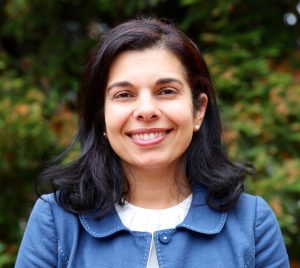 Dr. Teherani is a Professor of Medicine, an Education Scientist in the Center for Faculty Educators, and Director for Program Evaluation and Education Continuous Quality Improvement for the UCSF School of Medicine. She is the co-founder and co-director of the UCSF Center for Climate and Health. Dr. Teherani’s research, which has informed local, national and international conversations, research agendas and policies, focuses on advancing knowledge in professionalism, equity and social justice, and climate and health education. Her research on equity addresses educational practices which perpetuate educational disparities and examines interventions aimed at creating equity and inclusion during medical education. Dr. Teherani leads the UCSF Equity and Justice in Education works in progress series. She teaches in and mentors students in the UCSF-University of Utrecht doctoral program in Health Professions Education, Master’s Program at the UCSF-University of California, Berkeley, and UCSF Education Sciences Inquiry domain. Dr. Teherani serves as an associate editor for the Journal of General Internal Medicine and Medical Teacher’s Best Evidence in Medical Education series.
Dr. Teherani is a Professor of Medicine, an Education Scientist in the Center for Faculty Educators, and Director for Program Evaluation and Education Continuous Quality Improvement for the UCSF School of Medicine. She is the co-founder and co-director of the UCSF Center for Climate and Health. Dr. Teherani’s research, which has informed local, national and international conversations, research agendas and policies, focuses on advancing knowledge in professionalism, equity and social justice, and climate and health education. Her research on equity addresses educational practices which perpetuate educational disparities and examines interventions aimed at creating equity and inclusion during medical education. Dr. Teherani leads the UCSF Equity and Justice in Education works in progress series. She teaches in and mentors students in the UCSF-University of Utrecht doctoral program in Health Professions Education, Master’s Program at the UCSF-University of California, Berkeley, and UCSF Education Sciences Inquiry domain. Dr. Teherani serves as an associate editor for the Journal of General Internal Medicine and Medical Teacher’s Best Evidence in Medical Education series. Shani Fleming devotes her career to promoting diversity, inclusion, equity, and social justice within the healthcare community. She holds significant clinical experience as a Physician Assistant (PA) working in family medicine, infectious disease, and urgent care. Shani is an Associate Professor at the University of Maryland, Baltimore (UMB) Graduate School PA program and Intercultural Leadership certificate program. She is the Chief Equity, Inclusion, and Diversity Officer of the Physician Assistant Leadership and Learning Academy. She has facilitated recruitment efforts, reaching thousands of underrepresented racial and ethnic high school and college students advocating for diversity in PA education. Prof. Fleming is a proud HBCU graduate of University of Maryland Eastern Shore, and completed her Physician Assistant studies, Master of Public Health and Master of Science in Health Science from George Washington University. She is currently pursuing her Ph.D. in Language, Literacy, and Culture from the University of Maryland Baltimore County.
Shani Fleming devotes her career to promoting diversity, inclusion, equity, and social justice within the healthcare community. She holds significant clinical experience as a Physician Assistant (PA) working in family medicine, infectious disease, and urgent care. Shani is an Associate Professor at the University of Maryland, Baltimore (UMB) Graduate School PA program and Intercultural Leadership certificate program. She is the Chief Equity, Inclusion, and Diversity Officer of the Physician Assistant Leadership and Learning Academy. She has facilitated recruitment efforts, reaching thousands of underrepresented racial and ethnic high school and college students advocating for diversity in PA education. Prof. Fleming is a proud HBCU graduate of University of Maryland Eastern Shore, and completed her Physician Assistant studies, Master of Public Health and Master of Science in Health Science from George Washington University. She is currently pursuing her Ph.D. in Language, Literacy, and Culture from the University of Maryland Baltimore County.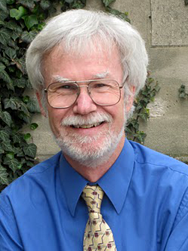 Rick McGee, PhD, received BS and PhD degrees in biochemistry from the University of Minnesota and the University of Iowa, respectively. He is currently the Associate Dean for Professional Development at Northwestern University Feinberg School of Medicine. In that role, his primary responsibility is to support the development of independent research programs of early career faculty. To achieve this, he has developed a novel approach to teaching grant wiring by leading coached writing groups that last 2-4 months. At any point in time 4-6 groups will be ongoing with 3-6 people/group. His career path to creating this unique role began with 20 years of laboratory research in basic neuroscience and cellular pharmacology. His roles then evolved to designing and leading research training at multiple levels, during which he began developing novel coaching models to complement research mentoring. During this evolution, he became interested in actually studying how young scientists develop using sophisticated qualitative research methods and established social science theories and models. A strong theme throughout his career has been in diversity efforts related to both gender and racial/ethnic equality. Today, in addition to his professional development role, he leads a team of social science and education researchers in the NIH-funded National Longitudinal Study of Your Life Scientists. They are also following the outcomes of PhD students who took part in a novel career coaching experiment, The Academy for Future Science Faculty. Dr. McGee also leads an NIH-funded diversity-focused professional development program for early PhD students at Northwestern (the CLIMB program), and is deeply involved with new approaches to promoting effective mentoring relationships, culturally aware mentorship, and grant writing skills through the National Research Mentoring Network (NRMN).
Rick McGee, PhD, received BS and PhD degrees in biochemistry from the University of Minnesota and the University of Iowa, respectively. He is currently the Associate Dean for Professional Development at Northwestern University Feinberg School of Medicine. In that role, his primary responsibility is to support the development of independent research programs of early career faculty. To achieve this, he has developed a novel approach to teaching grant wiring by leading coached writing groups that last 2-4 months. At any point in time 4-6 groups will be ongoing with 3-6 people/group. His career path to creating this unique role began with 20 years of laboratory research in basic neuroscience and cellular pharmacology. His roles then evolved to designing and leading research training at multiple levels, during which he began developing novel coaching models to complement research mentoring. During this evolution, he became interested in actually studying how young scientists develop using sophisticated qualitative research methods and established social science theories and models. A strong theme throughout his career has been in diversity efforts related to both gender and racial/ethnic equality. Today, in addition to his professional development role, he leads a team of social science and education researchers in the NIH-funded National Longitudinal Study of Your Life Scientists. They are also following the outcomes of PhD students who took part in a novel career coaching experiment, The Academy for Future Science Faculty. Dr. McGee also leads an NIH-funded diversity-focused professional development program for early PhD students at Northwestern (the CLIMB program), and is deeply involved with new approaches to promoting effective mentoring relationships, culturally aware mentorship, and grant writing skills through the National Research Mentoring Network (NRMN).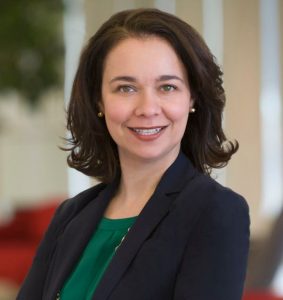
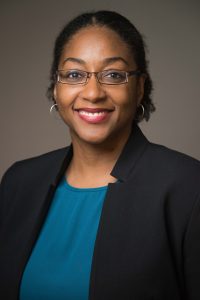 Ms. Caruthers joined the UTHSC PA Program faculty in January 2018. She holds her MS in Physician Assistant Studies from the University of Alabama at Birmingham (2009) and a MS in molecular, cellular and systemic physiology with a Certificate in anatomy from Southern Illinois University Carbondale (2005). Her career in academia started at SIUC as an anatomy instructor for the School of Medicine, but after earning her MSPAS, she served as PA faculty for approximately eight years at the University of Alabama at Birmingham, while working clinically in emergency medicine and urgent care. In between her teaching and administrative responsibilities at UTHSC, she practices primary care at the University Health Services clinic and at a local free clinic. Her passion to increase the representation of students who are from rural communities, from educationally and economically disadvantaged backgrounds, as well those historically not represented within the health professions is reflected in her local, state and national participation in a variety of health professions outreach activities.
Ms. Caruthers joined the UTHSC PA Program faculty in January 2018. She holds her MS in Physician Assistant Studies from the University of Alabama at Birmingham (2009) and a MS in molecular, cellular and systemic physiology with a Certificate in anatomy from Southern Illinois University Carbondale (2005). Her career in academia started at SIUC as an anatomy instructor for the School of Medicine, but after earning her MSPAS, she served as PA faculty for approximately eight years at the University of Alabama at Birmingham, while working clinically in emergency medicine and urgent care. In between her teaching and administrative responsibilities at UTHSC, she practices primary care at the University Health Services clinic and at a local free clinic. Her passion to increase the representation of students who are from rural communities, from educationally and economically disadvantaged backgrounds, as well those historically not represented within the health professions is reflected in her local, state and national participation in a variety of health professions outreach activities.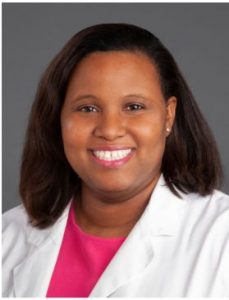 Dr. Marquita Stephanie Norman is an Associate Professor in the Department of Emergency Medicine and she serves as the Assistant Dean for Student Inclusion and Diversity at Wake Forest School of Medicine. She was born in Pine Bluff, Arkansas and completed her undergraduate education at Hendrix College in Conway, Arkansas. She attended medical school at the University of Kansas School of Medicine. She completed her internship at Howard University and residency training at the University of Michigan in Ann Arbor, Michigan. Dr. Norman previously served as the Director of Community Engagement in the Office for Diversity and Inclusion-Student Affairs at the University of Alabama at Birmingham (UAB) where she was responsible for diversity pipeline programming. Additionally, she completed her MBA from the Collat School of Business at UAB. Dr. Norman’s professional and community interests include communication skills, diversity education, pre-health education and healthcare disparities. Outside of work, she enjoys spending time with her young son.
Dr. Marquita Stephanie Norman is an Associate Professor in the Department of Emergency Medicine and she serves as the Assistant Dean for Student Inclusion and Diversity at Wake Forest School of Medicine. She was born in Pine Bluff, Arkansas and completed her undergraduate education at Hendrix College in Conway, Arkansas. She attended medical school at the University of Kansas School of Medicine. She completed her internship at Howard University and residency training at the University of Michigan in Ann Arbor, Michigan. Dr. Norman previously served as the Director of Community Engagement in the Office for Diversity and Inclusion-Student Affairs at the University of Alabama at Birmingham (UAB) where she was responsible for diversity pipeline programming. Additionally, she completed her MBA from the Collat School of Business at UAB. Dr. Norman’s professional and community interests include communication skills, diversity education, pre-health education and healthcare disparities. Outside of work, she enjoys spending time with her young son.